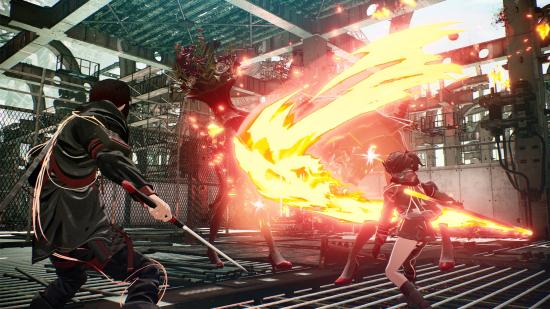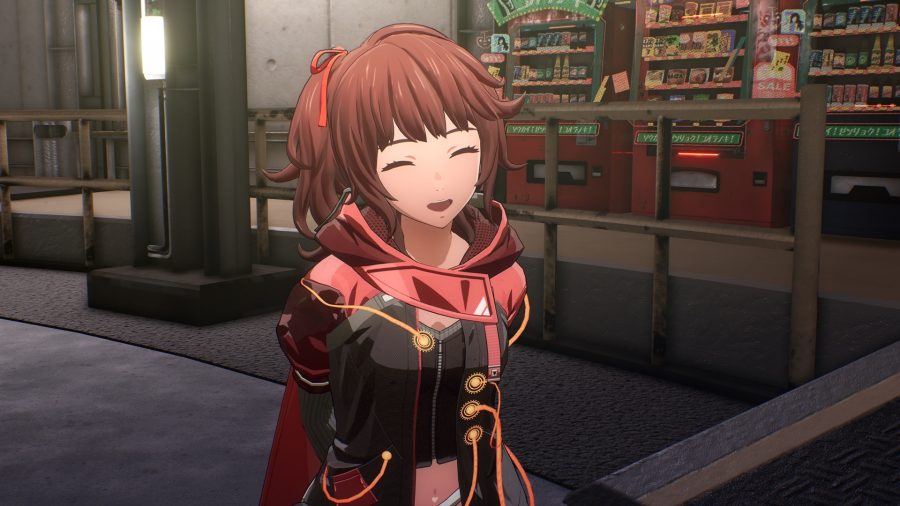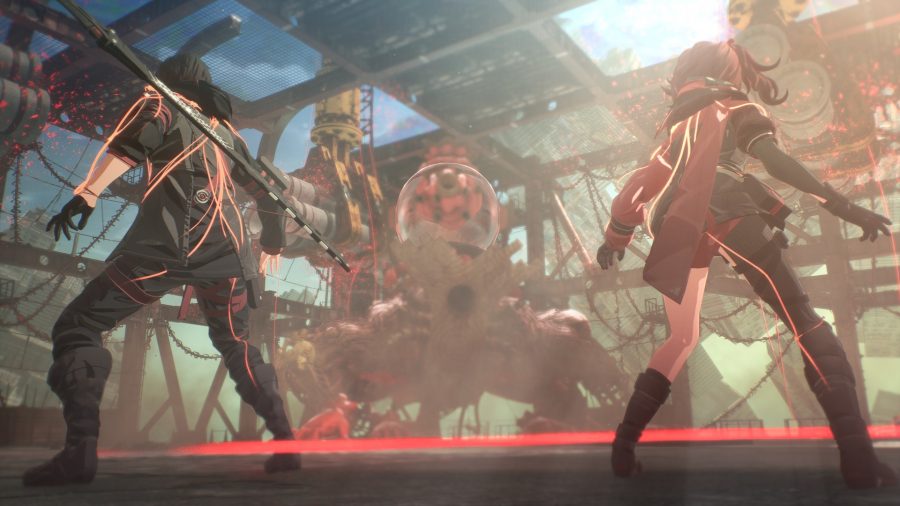Scarlet Nexus features all the trademarks of a cyberpunk game. People plod along old, withered streets that are laced with futuristic technology to make it glow, giving the upcoming PC game the high-tech meets low-life aesthetic that the genre is known for. There are other hints of Western science-fiction, too, as you join a physic task force that forms Earth’s last line of defence against unknown alien creatures. There are undoubtedly many influences at play in Scarlet Nexus, though Bandai Namco is keen to showcase the RPGs originality by calling it ‘brain punk’.
“We want to create an experience of individuals with different, specific superpowers teaming up,” game producer Keita Iizuka tells me. “So those superpowers in our case are brain powers, and therefore the brain was already central in that sense. We like the idea of thinking about what happens if all humanity has a more developed brain. Also, the Others – the enemies – aim for the brains of the humans and so it’s an overall keyword in the overall process of development.”
There’s other familiar cyberpunk imagery that Bandai Namco puts a spin on to make it brain punk, too. One thing that stands out to me in Scarlet Nexus is the hologram-like advertisements and banners that often appear in the streets of New Himuka. In typical cyberpunk works, the presence of giant, glowing advertisements are meant to visualise a paranoia of big brands invading your privacy if you let them, which makes their glow menacing. In Scarlet Nexus, these advertisements are information directly transferred and projected into people’s brains. But what does their presence mean?
“They’re part of the visions that the characters have in the world of Scarlet Nexus,” Game director Kenji Anabuki explains. “This also affects their brains in the story itself, though. There are times when you lose brain powers for a certain period, and then those neon lights, holograms, and ads disappear for that period. It also shows you the ease of not having them. But, generally, it is a way of us trying to emphasise the point that it is important for the brain to have to use that information as well.”
One of the main questions the team wants you to think about during your playtime is what loneliness is. Everyone in Scarlet Nexus is connected through their minds, but that doesn’t necessarily mean they have companionship. For Anabuki, the desire to explore the theme comes from the way we interact with social media and technology in real life.
“I think in our present, through social media, we live in a world where we are connected in some way to someone most of the time, and we take that for granted,” Anabuki says. “The Scarlet Nexus world is a step even further. We elaborated on that idea because it’s even easier for the people to connect through their brains with other people. So, it’s taken for granted even more.
“But, we do provide a moment where you realise that within this connection, you still are an individual and that you may lose the connection to the others and that makes you realise the value of the connection that you have to others all the time. So that is an idea that we wanted to draw attention to – that you also realise the value of being connected to others so easily.”

While Bandai Namco wants to explore original ideas, there are elements of its story that makes putting the punk in brain punk fitting. Many punk-related genres typically act as cautionary tales, and Scarlet Nexus also has something it wants to say about the world, too. You’ll have to wait and play the game to find out, but Anabuki does let a little bit slip.
Something similar? Here are the best cyberpunk games on PC
“Yuito Sumeragi, the protagonist, is generally fond of the idea of joining the OSF (Other Suppression Force),” Anabuki explains. “He’s very attracted to it and thinks of this force as a team of heroes. But he does come to a point where he realises that it’s not only that, but it’s also very different depending on the connection to each member of the force.
“That makes him realise that there’s also another side to the OSF and the world. He draws anger from this realisation towards the world that he lives in and I think that’s something that we try to include by using the word punk.”
There’s no word on a release date just yet, but Iizuka reckons the brain punk game is in good shape, and that the team is close to where it want to be. In the meantime, I also spoke to Anabuki and Iizuka about creating a world unrestricted by the rules the Tales of series lays out, and how the studio has learnt and improved from its take on the Dark Souls formula with Code Vein.


